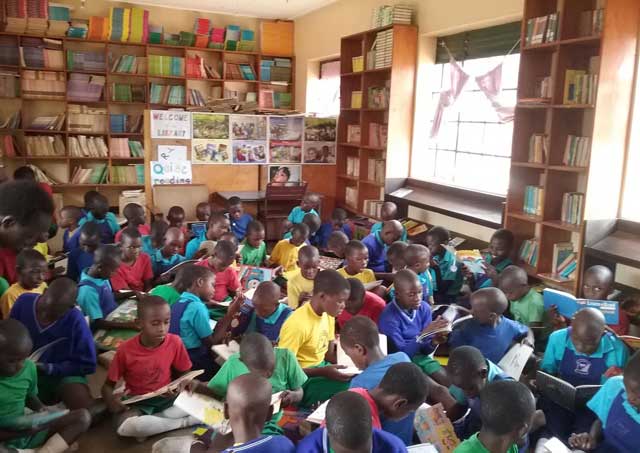
Kampala, Uganda | THE INDEPENDENT | As countries around the world start lifting COVID-19 lockdowns that were instituted to forestall the spread of the pandemic, Global Education Partners-GPE are calling upon for implementing new measures that will keep learners safe in schools.
Some of the measure that governments are being asked to consider include; scrapping promotional examinations, moving classrooms to open places and putting in place social distancing measures that could see learners study in shifts.
Once in schools, the use of masks by teachers, leaners and staff should be considered to reduce exposure or spread of diseases causing aerosols, according to the guidelines that have been printed in the ‘Framework for Reopening Schools’, agreed upon by the United Nations Educational, Scientific and Cultural Organization-UNESCO, United Nations International Children’s Emergency Fund-UNICEF, the World Bank and the World Food Programme-WFP.
The agencies have called upon governments to consider the capacities of schools to remain open and maintain safe environments that will reduce the risks of the disease being spread and the level of exposure of the school population to high-risk groups such as truck drivers and people susceptible to being infected like the old.
They are also calling upon policymakers to determine whether the risk of opening schools outweighs that of them being closed and to determine whether remote learning can replace traditional learning for some subjects in an effort to reduce person-to-person interaction.
If governments decide to re-open schools, they suggest opening schools in stages for example, immediately after the lockdown is lifted, schools can consider opening for a few days of the week. Also, initial school openings can also be limited to certain classes or levels of education.
In situations where parents might not be able to afford school fees, since many have not been working during the lockdowns, governments are being asked to consider waiving school fees and other costs where possible to eliminate barriers that might keep learners out of school.
Before teachers go to classrooms, the government are being asked to conduct risk assessments for teachers and other staff. The return to duties for staff with chronic illnesses should be a delay.
In addition to this, they call for the making of policies to protect teachers and learners who are at high risk due to age or underlying medical conditions like asthma, diabetes, HIV who are more susceptible to acquiring the disease. They call for providing special circumstances under which such groups can return to schools. For the sake of teachers, they recommend human approaches such as revising attendance policies with teacher unions.
The government has also been asked to train school administrators and teachers on how to maintain social distancing in schools and provide clear procedures that should be followed in case a learner becomes unwell. In addition to this, school cleaners should be provided personal protection equipment such as gloves and face shields or mask and be trained on how to disinfect different surfaces.
Special financing to schools is also being recommended to enable them to provide more sanitary amenities like toilets and washing facilities with soap. Schools can also provide hand sanitizers to increase the level of protection.
The guidelines also call for a lot of public sensitization about the disease in schools. They should provide concise and accurate information about COVID-19 and also normalize the messages about fear and anxiety associated with the disease.
In cases where the governments decide that opening schools is risky, remote learning should take place so that learners do not miss out. The government is also being urged to implement accelerated learning in areas where schools might not be able to re-open.
Uganda’s lockdown is scheduled to end on May 5, 2020. Educationists are already meeting to find a way forward to allow for the reopening of schools. Some of the measures that have been agreed upon so far is practising social distancing measures where learners sit at least two meters away from each other.
They are also calling for the skipping of rest of the first term so that the new school term starts with the second term.
*********
URN
 The Independent Uganda: You get the Truth we Pay the Price
The Independent Uganda: You get the Truth we Pay the Price



Open up schools
I really love this